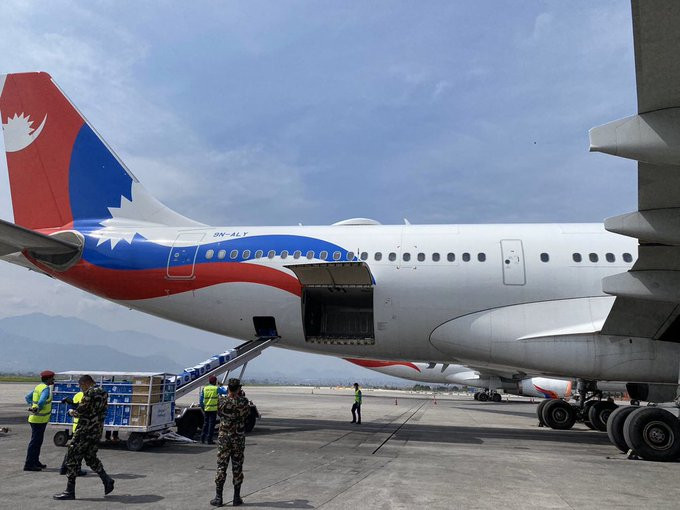There is price disparity in the medical supplies procured by the Health Ministry through Omni International and the Nepal Army (NA).
The NA—that was asked to procure the supplies through government to government arrangements after the government unilaterally revoked the contract with Omni International following widespread claims that the materials were substandard and expensive—paid more for some items while the Health Ministry has paid more for others.
NA Spokesperson Bigyan Dev Pandey said the NA held discussion with the ministry on the price list and quality, and sought budget from the Finance Ministry accordingly.
The NA signed an agreement worth US$ 18,441,706 (around Rs 2.25 billion) with the Sinopharm Group, owned by the Chinese government, to procure 341 tons of medical supplies. The majority of the materials have arrived by now and the remaining will come within this week.
The NA has got infrared thermometers at a lower rate than the Health Ministry. It has paid Rs 5,344.61 for every unit while the ministry had procured at Rs 7,930, according to the price lists acquired by Setopati.
The NA, similarly, bought goggles at Rs 303 per unit while the ministry had paid Rs 2,186. It paid Rs 189.53 for every unit of face shield that the ministry had procured at Rs 305. The ministry paid Rs 146.40 for every pair of disposable vinyl gloves that the NA paid just Rs 8.09. It paid Rs 854 for every unit of protective face mask that the NA had procured at Rs 372.73.
The NA has also paid a higher rate for some items. It paid Rs 2,501.73 for every unit of disposable protective clothing that the ministry had procured at Rs 1,952.
It has also paid a higher rate for surgical masks paying Rs 54 for every unit that the ministry had procured at Rs 39. It paid Rs 308 for every pair of protective shoe cover that the ministry had procured at Rs 244.
Why is there price disparity?
Former director general of the Department of Health Services Mahendra Shrestha argued that there is price fluctuation in the market. "Price had skyrocketed when Omni and NA procured the items. It has now fallen back globally after production resumed," he pointed. "Omni had procured masks bearing loss. The price seems to be higher as the NA procured through government to government arrangements."
He contended that while the department can sign contract with the lowest bidder the situation is different in government to government arrangements. He also opined that the disparity has also arisen as the price of materials procured at one time has been compared with those procured at other time.
"There is no chance of commission as the materials have been procured through government to government arrangements without keeping any agent. The government stands to gain if some materials have been bought at a lower rate and will lose if procured at a higher rate."
NA Spokesperson Pandey also pointed that the materials have been procured through government to government arrangements and claimed that there has been no compromise in quality. "There has been no compromise in quality in the materials brought by us. The Chinese government has guaranteed for quality," he stated. "We signed agreement before procurement after holding discussions with everyone."

